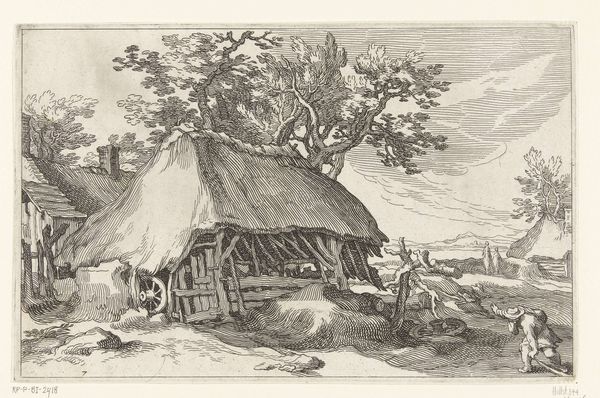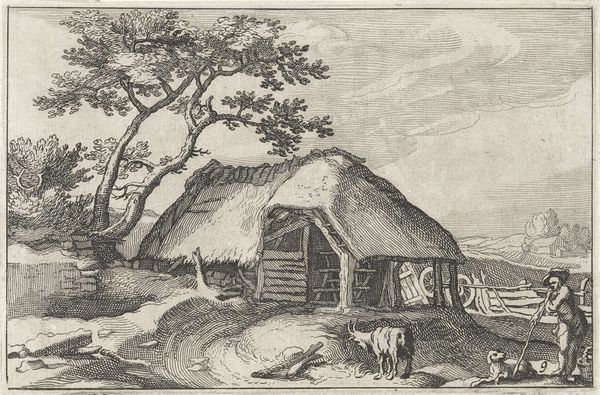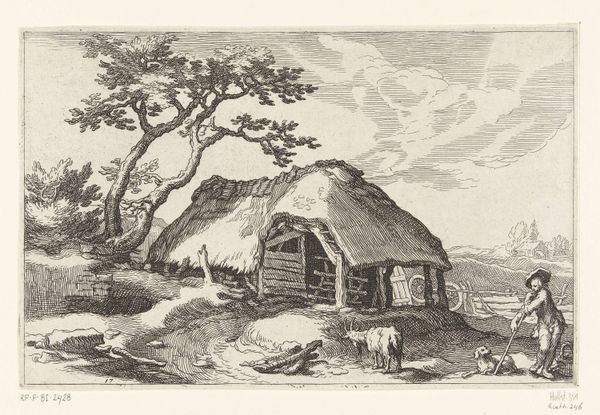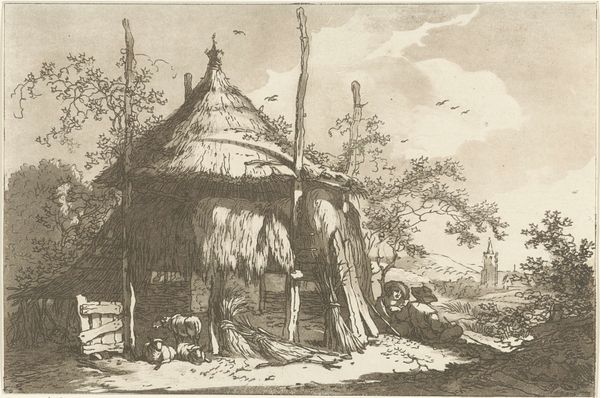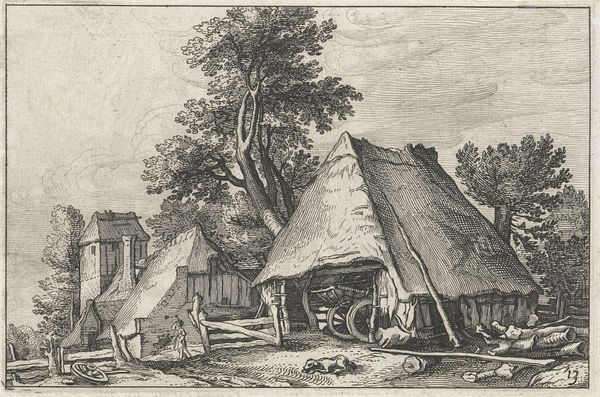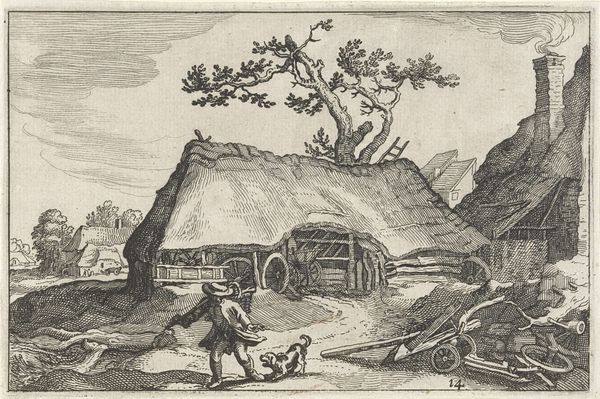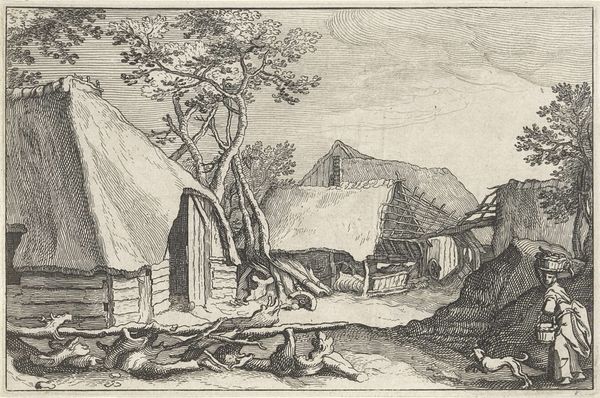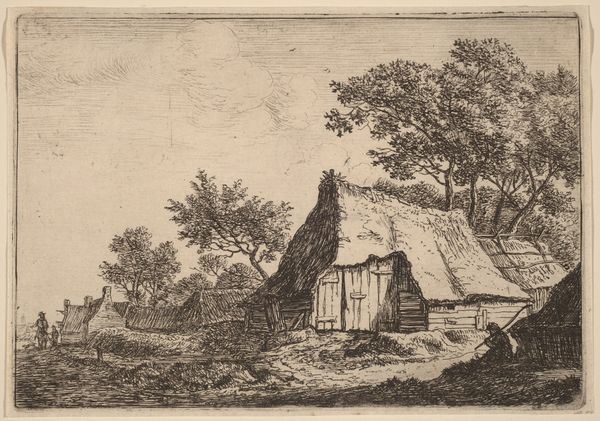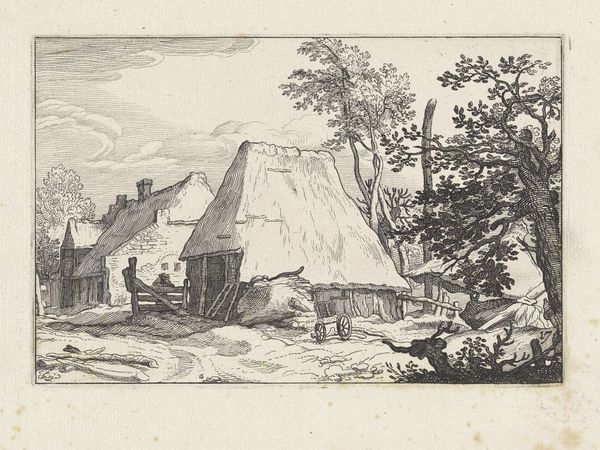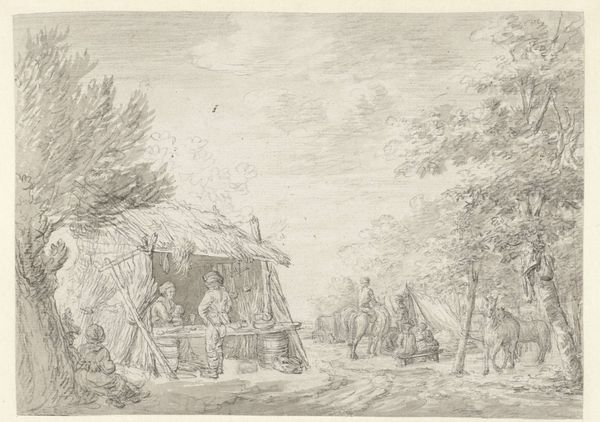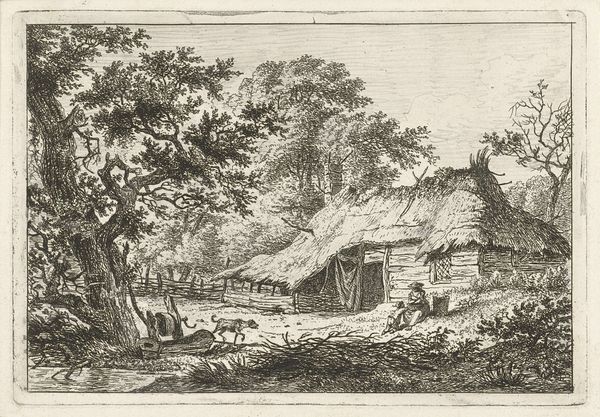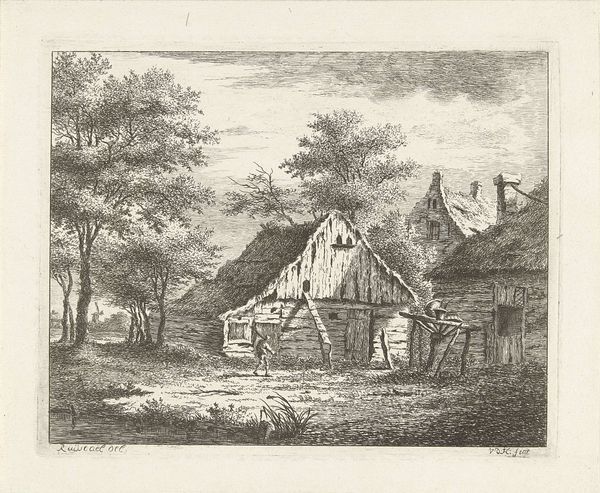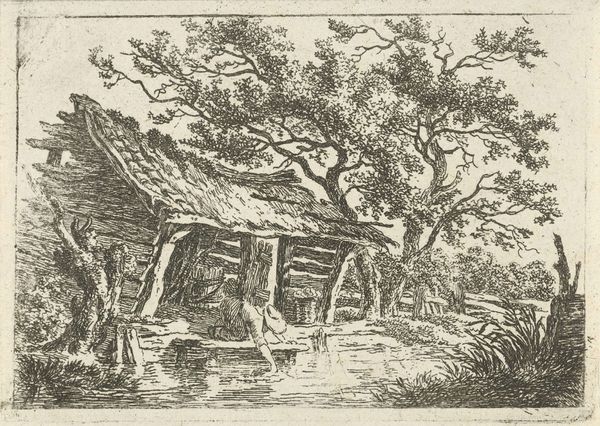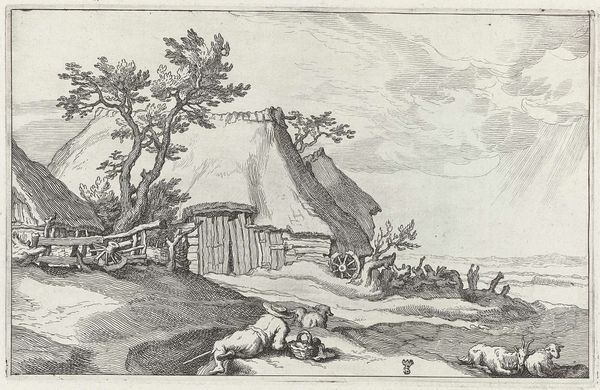
print, etching, engraving
#
dutch-golden-age
# print
#
pen sketch
#
etching
#
landscape
#
engraving
Dimensions: height 104 mm, width 159 mm
Copyright: Rijks Museum: Open Domain
Curator: Before us hangs "Boerderij," or "Farmhouse," a 1620 etching and engraving by Claes Jansz. Visscher, currently held in the Rijksmuseum collection. It is quite small, really, typical of prints from this era. Editor: It feels vast despite the small size. I'm drawn to the weathered textures, the meticulous rendering of the thatched roof. There is something so timeless and comforting in its depiction of rural life. Curator: The Golden Age was certainly keen on the aestheticization of rural life. These images gained popularity alongside the growth of cities and trade. There’s this longing, wouldn’t you say, to idealize the pre-urban, the agricultural way of life? Editor: Absolutely. The farmhouse takes on a mythic quality here. The overhanging thatch seems to imply that this place provides shelter not only to the tools but to the essence of nature itself, offering protection from the changes taking place elsewhere. It is more than a farmhouse; it’s a symbol. Curator: It is interesting to me that there appears to be activity near the barn, while further afield, in the middle ground, the individuals are posed, almost frozen in place, as if figures within a much larger tapestry. This points to the tension between work and representation. Editor: It also amplifies the contrast between the mundane, perhaps temporary realities closer to us and the more immutable qualities represented in the distance. And it is that contrast that echoes through the present. Are we focused too much on the background figures today while the barn and what goes on there fades from our collective memory? Curator: Food for thought indeed. This etching offers us a chance to consider the complicated narratives we construct about our relationship to the land and, crucially, to those who labor on it. Editor: "Boerderij" manages to collapse time and thought. It leaves you lingering somewhere between reality and representation, wondering about the continuity and change of meaning itself.
Comments
No comments
Be the first to comment and join the conversation on the ultimate creative platform.
